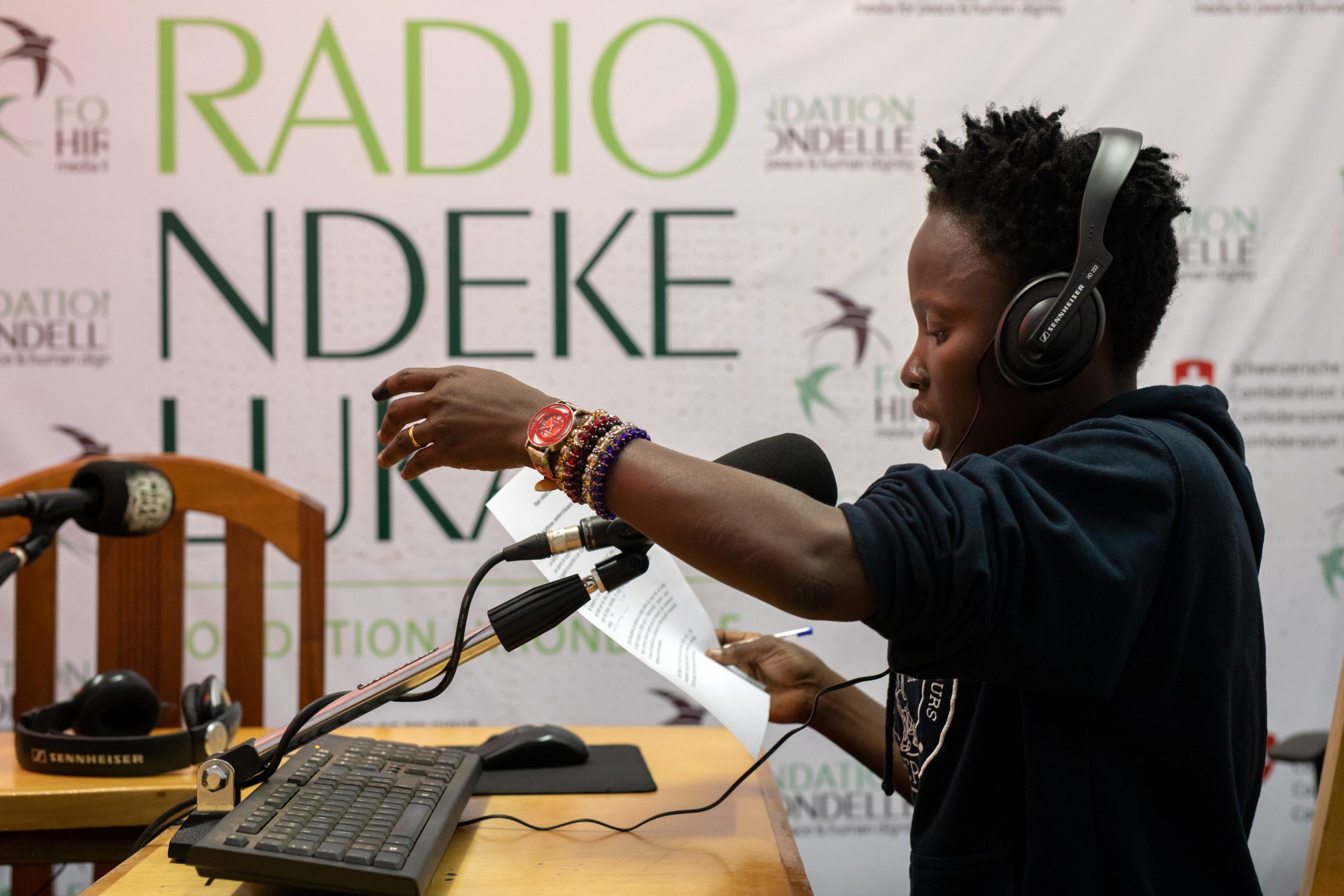DIGITAL INVESTIGATIVE JOURNALISM IN AFRICA TOOLKIT
Technology has and will continue to transform investigative journalism. The goal of this project is to ensure that broadcast journalists in Sub-Saharan Africa feel empowered by new technology and use it to continue to deliver powerful reporting that drives change.
This toolkit was developed by the Public Media Alliance with funding from the Grace Wyndham Goldie (BBC) Trust Fund, as part of our digital investigative journalism project. Thank you to Mr Guy Porter for his role in developing this resource.


Find out more about the project
Introduction
This toolkit consists of video tips, guides, and other resources. It is an accompaniment to the “Investigative Journalism in the Digital Age” workshop, held in Windhoek, Namibia from 28-29 June 2023. The toolkit provides additional resources to sustain the project beyond the workshop sessions. Journalists will learn how to use digital sources alongside the latest tools to uncover new knowledge and evidence for short or long investigations.
While this toolkit is aimed at broadcast journalists in Sub-Saharan Africa, it can serve as a useful resource for any media worker interested in blending investigative journalism with digital journalism.
In our quick tips videos, experts will guide you through the fundamentals of digital investigations; how to choose and develop story ideas; and digital methods for evidence gathering and verification.
Toolkit modules
Part 1: DEVELOPING YOUR INVESTIGATIVE STORIES
Introduction to investigative journalism and its difference from other forms of journalism
This introduction to the ‘Exposing the Invisible’ guide by international NGO Tactical Tech provides an overview of fundamental concepts in investigative journalism. It introduces valuable insights and guidance for individuals interested in conducting investigative journalism or seeking to deepen their understanding of investigative techniques.
How to lay the groundwork for an investigative story; how to choose story ideas; develop and utilise contacts and sources
The Story-Based Inquiry method provides reporters with the basics for starting, deepening, organising and writing an investigative report. It provides a step-by-step framework for journalists to develop compelling narratives, identify key characters, structure investigative stories, and communicate their findings.
How to keep yourself and your sources protected (whether it is digitally, physically, or legally)
This ten-point online safety checklist from the Public Media Alliance provides crucial tips for investigative journalists to safeguard themselves, their sources, their devices, and their investigations. The checklist was developed during the “Investigative Journalism in the Digital Age” workshop, held in Windhoek, Namibia from 28-29 June 2023.
Security in a Box is a resource website that offers practical tools and guides to help individuals and organisations enhance their digital security and privacy. It provides step-by-step instructions and software recommendations for securing communications, protecting data, and defending against online threats.
The Journalist Security Assessment Tool (JSAT) was developed by GIJN partners and journalists around the world. The assessment tool will make a series of recommendations following a series of questions about your work and project. It covers various areas of cybersecurity, including threat detection, secure communication, and risk management, and provides practical steps and resources for enhancing security practices.
Part 2: EVIDENCE GATHERING & VERIFICATION
Introduction to evidence gathering and verification
A Google News Initiative Course to help journalists interpret a range of online sources to strengthen their efficiency and efficacy of in-depth research. The resources cover topics such as data analysis, geolocation, fact-checking, source verification, and storytelling techniques, supporting journalists in producing impactful investigative reports.
A self-directed course featuring content from the Knight Center for Journalism’s online course “Digital investigations for journalists: How to follow the digital trail of people and entities.” The course covers fundamentals of digital investigations, investigating people and social media accounts, search techniques for finding and monitoring, investigating websites and network analysis.
A resource authored by leading journalists from the BBC, Storyful, ABC, Digital First Media and other verification experts for verifying digital content. It covers various aspects of verification, including assessing sources, analysing images and videos, verifying social media content, and debunking misinformation, offering valuable guidance for ensuring accuracy and credibility in digital reporting.
Dive into methods, such as open-source research techniques and social media research techniques and verification
A set of resources designed by Tactical Tech that showcases a variety of methods for using digital information as evidence. The guide covers topics such as newsgathering and verifying information, conducting interviews, and managing risks. It emphasises critical thinking, research, and collaboration throughout the investigative process, and explains how to plan and structure an investigation, analyse data, and identify patterns.
Multilingual short courses for journalists from leading global news agency Agence France-Presse. The platform offers a range of online courses designed to enhance digital skills for journalists and media professionals. The courses cover topics such as geolocation, social media verification, digital storytelling, and multimedia production, providing valuable training for modern journalism practices.
“The Toolbox” series by the Global Investigative Journalism Network (GIJN) is a collection of practical guides and resources for investigative journalists. It covers various tools, techniques, and skills essential for investigative reporting, including data analysis, digital security, visual storytelling, and fact-checking, serving as a valuable reference for journalists seeking to enhance their investigative toolkit.
The Invid Verification Project is a platform providing tools to detect, authenticate and check the reliability and accuracy of newsworthy image and video content. It offers resources, tutorials, and a browser plugin to assist journalists and social media investigators in analysing and verifying the authenticity of evidence.
Storytelling with digital evidence and sources
The Knight Lab’s Storytelling Tools are a collection of innovative digital tools designed to enhance storytelling in journalism. These tools include TimelineJS, StoryMapJS, and SoundciteJS, providing journalists with interactive and engaging ways to present their stories using timelines, maps, and audio elements.
The Datawrapper Academy is an online resource that offers comprehensive training and tutorials on using the Datawrapper platform for creating data visualisations. It covers various topics, including chart types, data analysis, customization, and embedding. The Academy provides valuable guidance for journalists and data enthusiasts to effectively present and communicate data-driven stories.
VIS is a data visualisation platform designed to assist investigative journalists, activists and others in mapping complex networks of companies and individuals. Its aim is to help investigators understand and explain corruption, organised crime and other wrongdoings and to translate complex narratives into simple, universal visual language.
Header image: Participants at PMA’s Investigative Journalism in the Digital Age workshop, held in Windhoek, Namibia from 28-29 June 2023. Credit: Harry Lock / PMA
Introduction image: Claire Suzanne Assamba Denga, journalist and co-producer of the program “Musique et sports”, presents the radio news in the studio A of radio Ndekeluka, the main radio station of the Central African Republic, on March 17 in Bangui, capital of the Central African Republic. Credit: ©Gwenn Dubourthoumieu / Fondation Hirondelle
- Home
- Digital investigative journalism toolkit



















